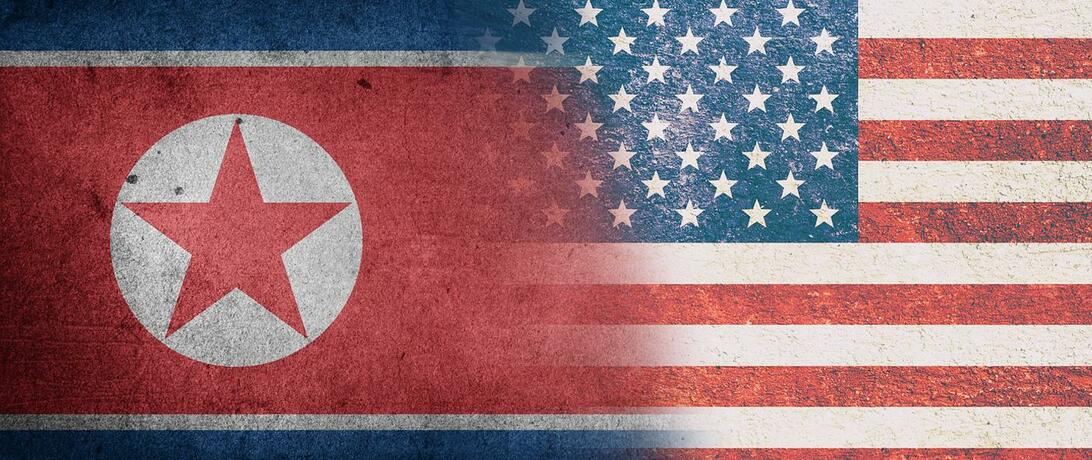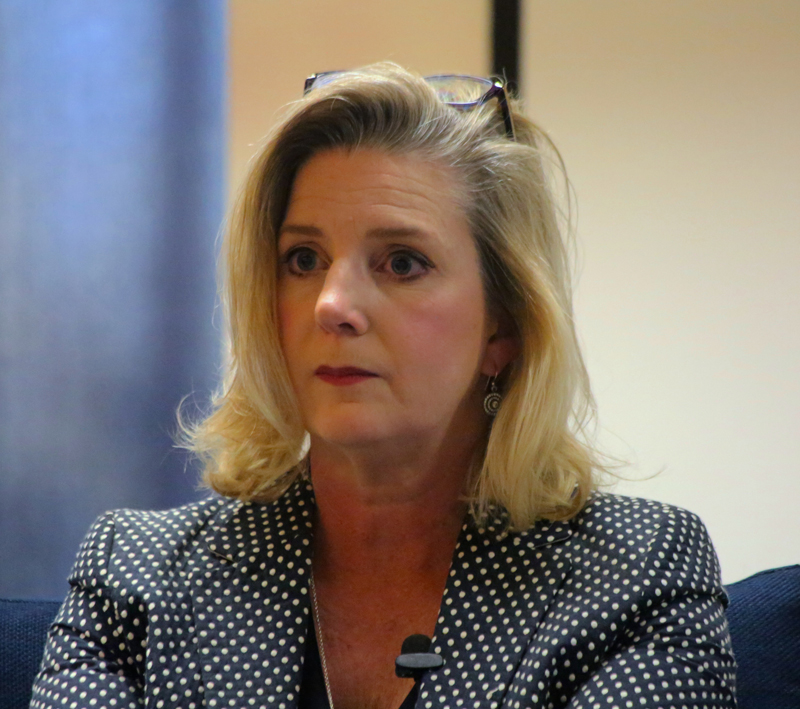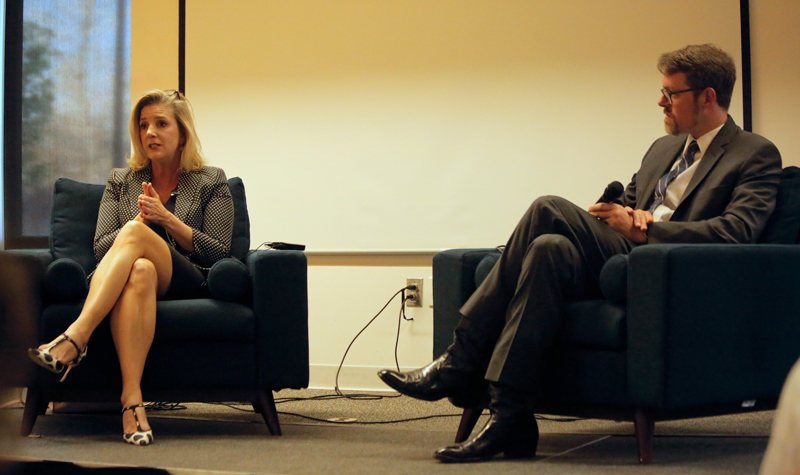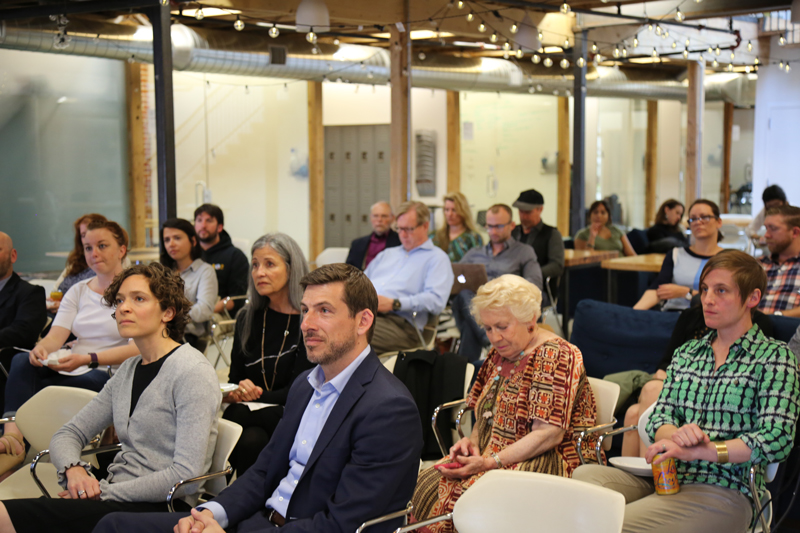
Wormuth, a former undersecretary of defense for policy at the US Department of Defense, was invited to share her thoughts on the current events unfolding in North Korea by One Earth Future and the non-profit, Foreign Policy for America. “Certainly this year has been an extraordinary moment in the Korean Penninsula,” Christine Wormuth, a director at the Atlantic Council, told an audience gathered at the Posner Center for International Development Wednesday evening.

A Former Policymaker Assesses the Likelihood of Peace
After years of sluggishness, suddenly anything seems possible. This week Kim Jong Un becomes the first North Korean leader to cross the border into South Korea. Kim will sit down with President Moon in an effort to negotiate a deal that will de-escalate the threat of nuclear weapons.
“Certainly this year has been an extraordinary moment in the Korean Penninsula,”Christine Wormuth, a director at the Atlantic Council, told an audience gathered at the Posner Center for International Development Wednesday evening.
Wormuth, a former undersecretary of defense for policy at the US Department of Defense, was invited to share her thoughts on the current events unfolding in North Korea by One Earth Future and the non-profit, Foreign Policy for America. During her service under the Obama administration, Wormuth advocated for a two-track approach to deal with the North Korean regime, one that called for a policy of engagement and pressure.
 Caution and Concern
Caution and Concern
At the recent gathering in Denver, Wormuth wasn’t surprised that Kim Jong Un was open to participating in the upcoming summit. She told the audience that she believes the reason is that Kim feels confident about his nuclear program and he is facing pressures from the economic sanctions that world powers are using to punish North Korea. However, Wormuth did have reservations about a potential meeting between Kim and President Trump. The current U.S. administration has been more open to diplomatic talks with North Korea than previous governments, but the president also continues to tighten the vice grips on the isolated regime.
“I’m cautious and concerned about where we go from here,” said Wormuth. “This is high stakes poker. We don’t really know much about Kim Jong Un, the man. Personal chemistry is important to Trump. Kim Jong Un is an unknown. What happens if the summit goes wrong?”
If the meeting falls apart, Wormuth thinks that diplomacy will end and it will not be a future option. On the other-hand, any type of military strike by the United States on North Korea will not reap benefits.
“A war on the Korean peninsula will have devastating consequences on the global economy,” said Wormuth.
Denuclearization is possible, but it will be a long and difficult path that must be approached incrementally. Despite Trump’s threats to pull out of the Iran nuclear deal, Wormuth believes that the diplomacy behind that initiative could serve as a model for talks with North Korea.
 What We Can Do Back Home
What We Can Do Back Home
Many in the audience at the Posner Center event were interested in hearing about the high-level strategy that goes into bringing world leaders to the table to negotiate difficult issues. Yet, a few wondered what, if any, kind of difference they could make as individuals.
“Most of the people in this room are engaged citizens interested in these issues, and many work in international affairs in some way,” remarked Conor Seyle, director of OEF’s research program, who moderated the evening’s conversation. “But few if any of us have a current direct role in US government policy.”
While Wormuth agreed that ultimately a small group of governing elites will decide the fate of North Korea’s nuclear program, she also argued that normal, everyday citizens are not powerless.
“Congress has an important role to play,” she said. “They decide foreign policy and if the we put troops on the ground. Take an interest in this issue and make it clear to your congressman and senator that you care, and that they should too.”
While it will be impossible to predict what happens next in the talks between North Korea and the United States, OEF and its research program will continue to follow global political trends, through its Rulers, Elections, and Leaders and CoupCast datasets, to identify the risks and short-term triggers that greatly increase the risk of political violence.
- Text and photos by Jean-Pierre Larroque
Article Details
Published
Topic
Program
Content Type
Opinion & Insights